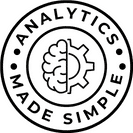Job titles containing “data” or “analytics” seem to multiply every day. How is a data analyst different than a data scientist or BI developer? , what do they actually do day-to-day? As data becomes more important across industries, these roles remain confusing to many. Let’s explore what six key data jobs involve using simple explanations.
Table of Contents
Data Analysts – The Data Detectives
Data analysts are like detectives – they investigate data to uncover hidden patterns and stories! Using their sleuthing skills, analysts slice and dice data sets every which way to spot trends, deviations, and insights. For example, a retailer’s analyst may poke around the sales data to see which products and promotions are hot or not. Fancy statistical models aren’t always needed – just lots of creativity, curiosity, and a sense for spotting the story in the data.
BI Analysts & Developers – The Visualizers
Next, we have business intelligence (BI) analysts and developers. These data pros put their energies into creating dashboards, reports, and visualizations that bring data to life! BI analysts focus on the business side – determining what metrics and KPIs will help different teams monitor performance. Meanwhile, BI developers build the actual dashboards, integrating data from various systems and databases into visually compelling maps, charts, and graphs. For instance, a digital marketing BI analyst might design a campaign ROI dashboard pulling data from web analytics, CRM, email systems, and more.
Data Scientists – The Model Builders
If data analysts are detectives, data scientists are mad scientists – in a good way! Data scientists employ advanced statistical and machine learning wizardry to uncover hidden insights and make predictions. Their secret sauce is building complex models to make sense of messy, multifaceted data.
For example, data scientists at a bank may engineer models analyzing customer data to predict the likelihood of defaulting on a loan. Part software engineer, part analyst – data scientists live in a world of algorithms, statistical theory, and computational models.
Data Engineers – The Pipeline Wranglers
Data engineers specialize in building and maintaining the infrastructure data analysis relies on. While analysts explore data and scientists model it, engineers ensure it’s accessible! They develop pipelines to collect, store, move, and organize data for downstream use. Data engineers apply their software development skills to transform disjointed data systems into efficient analytics ecosystems. If data is the lifeblood of organizations today, data engineers keep it flowing!
ML Engineers – The Model Mechanics
Machine learning (ML) engineers have specialized expertise in deploying ML models into production. While data scientists develop theoretical models, ML engineers handle the engineering work of integrating them into applications and systems. This can include monitoring models, ensuring sufficient data flows, and retraining models to maintain performance. For example, a sentiment analysis model will need ongoing tuning and quality control before being published in a customer service chatbot.
Software Engineers – The App Architects
Last but not least we have software engineers. While not exclusively data-focused, software engineers partner closely with data teams to build platforms, apps, and technical infrastructure. An e-commerce company for example may employ engineers to construct personalized product recommendation engines using algorithms designed by data scientists. The two roles require close collaboration to develop production-ready solutions.
Summary
The data world may seem like a maze of job titles, but hopefully, this breakdown clarifies what each day-to-day role actually involves! While specific responsibilities vary, one thing is clear – it takes a cross-functional team to transform raw data into actionable insights. Analysts uncover findings, scientists model, engineers build infrastructure, and collaborators like software developers bring it all together.
At the end of the day, each data job plays a critical part in empowering organizations to tap into the power of data to inform decisions and create value. Though their skills differ, their shared goal is generating meaningful insights. So next time you encounter an ambiguous data job title, you can ask about their specific contributions and see how they fit into the big picture!
Cheers!
-J








